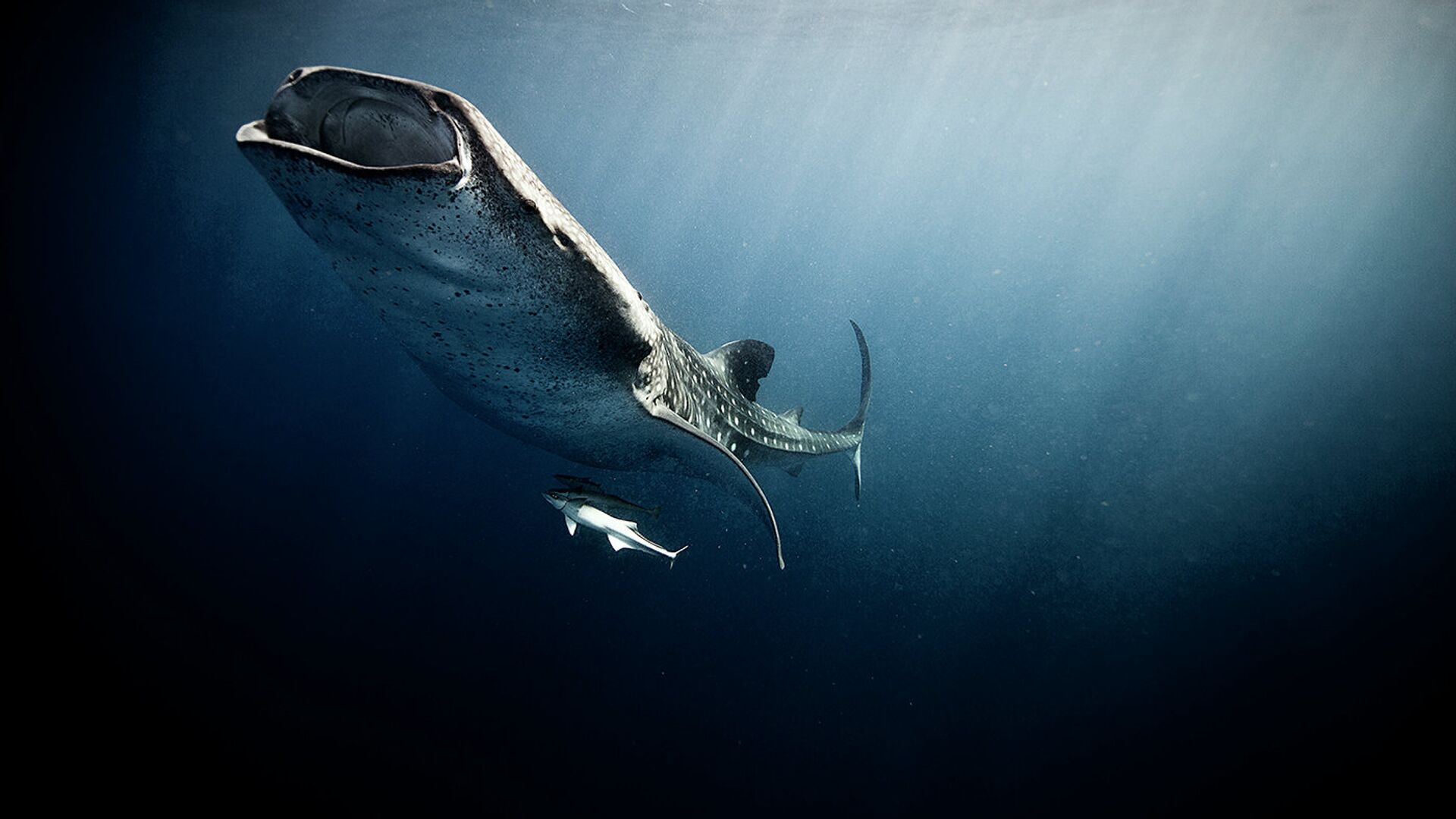https://sputnikglobe.com/20220510/lethal-ship-strikes-threaten-whale-shark-population-new-study-reveals-1095387414.html
'Lethal Ship Strikes' Threaten Whale Shark Population, New Study Reveals
'Lethal Ship Strikes' Threaten Whale Shark Population, New Study Reveals
Sputnik International
Ever increasing volumes of maritime traffic have led to lethal collisions between ships and the sea's largest fauna, and there are fears that some species... 10.05.2022, Sputnik International
2022-05-10T05:28+0000
2022-05-10T05:28+0000
2022-05-10T05:28+0000
world
shark
population
https://cdn1.img.sputnikglobe.com/img/102236/71/1022367100_0:73:1400:861_1920x0_80_0_0_fceaffad8e720e422aa9d9d099bf9c0a.jpg
Lethal collisions between whale sharks and large vessels have been "vastly underestimated", according to scientists from the Marine Biological Association (MBA) and the University of Southampton.According to the study, more than 90 percent of whale shark movements coincide with routes used by international shipping.Scientists hope that their research could help protect whale sharks from further population decline in the future.The whale shark is the largest species of fish on the planet with a length of up to 20 metres and a weight of up to 34 tonnes. It feeds on microscopic animals called zooplankton, filtering water through its gills. It can migrate thousands of miles in search of plankton accumulations.
Sputnik International
feedback@sputniknews.com
+74956456601
MIA „Rossiya Segodnya“
2022
Sputnik International
feedback@sputniknews.com
+74956456601
MIA „Rossiya Segodnya“
News
en_EN
Sputnik International
feedback@sputniknews.com
+74956456601
MIA „Rossiya Segodnya“
Sputnik International
feedback@sputniknews.com
+74956456601
MIA „Rossiya Segodnya“
shark, population
'Lethal Ship Strikes' Threaten Whale Shark Population, New Study Reveals
Ever increasing volumes of maritime traffic have led to lethal collisions between ships and the sea's largest fauna, and there are fears that some species could face extinction.
Lethal collisions between whale sharks and large vessels have been "vastly underestimated", according to scientists from the Marine Biological Association (MBA) and the University of Southampton.
“The maritime shipping industry that allows us to source a variety of everyday products from all over the world, may be causing the decline of whale sharks, which are a hugely important species in our oceans,” University of Southampton PhD researcher Freya Womersley said.
According to
the study, more than 90 percent of whale shark movements coincide with routes used by international shipping.
“Incredibly, some of the tags recording depth as well as location showed whale sharks moving into shipping lanes and then sinking slowly to the seafloor hundreds of metres below, which is the 'smoking gun' of a lethal ship strike,” Professor David Sims, senior research fellow at the University of Southampton and founder of the Global Shark Movement Project, said.
Scientists hope that their research could help protect whale sharks from further population decline in the future.
The whale shark is the largest species of fish on the planet with a length of up to 20 metres and a weight of up to 34 tonnes. It feeds on microscopic animals called zooplankton, filtering water through its gills. It can migrate thousands of miles in search of plankton accumulations.


